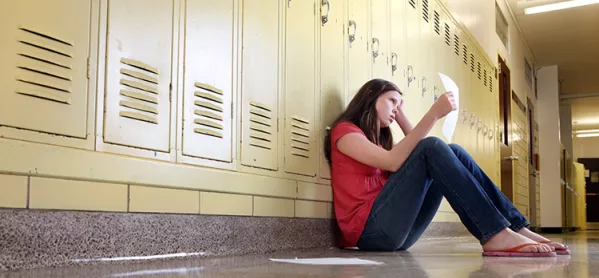- Home
- ‘Unconditional offers are letting students down’
‘Unconditional offers are letting students down’

University is life-changing for many people, not just in terms of their employment opportunities, but in their outlook and confidence. It certainly changed mine. However, there are some practices, such as unconditional offers, which are letting students down.
The increase in unconditional offers has been swift and significant, with fewer than 3,000 recorded in 2013, rising to more than 50,000 in 2017. Ucas’ annual report identifies that the number of unconditional offers from selective universities for high-performing A-level students has increased but not at the same rate as that of recruiting universities for Btec students, a group which is flagged as more likely to drop out and less likely to achieve a first or 2.1 if they do complete.
The drivers for this are simple. In 2014, the student number control, which capped the number of students a HE institution could recruit, was removed. At the same time, there is an ongoing demographic dip in 18-year-olds, with the number of 18-year-olds not due to start increasing until 2020. This has prompted an increase in unconditional offers from some colleges for their HE offers, as, in spite what might be in the best interest of the student, the allure of attending a university is too great for some, even when weighed against the increased likelihood of dropping out because of the reduced support, reduced delivery hours and increased class sizes.
'Unconditional firm'
There has been a fair bit in the press on the "foot off the pedal" mentality this has generated in some students, with evidence they have dropped as many as two grades from their predicted profile. It doesn’t take much to find forum threads with high-performing students posting that they are so anxious about their Oxbridge application outcome, they are considering taking an "unconditional firm" from elsewhere to take the pressure off. Once you accept an unconditional offer, you have committed to that institution; you don’t need your insurance offer from a grade perspective, so you could only change your mind by entering the scramble of clearing or withdrawing completely. And in the damning words of one poster, this practice "can prey on the vulnerabilities of insecure students".
Model that insecurity over to a student who has perhaps not achieved the GCSE grades to do an A-level programme and has started college on a lower-level programme – taking three or four years to achieve their level 3. One who has chosen a vocational qualification because they can’t face another set of exams after doing badly at GCSE, a student who perhaps hasn’t had the family infrastructure, role models or positive school experience to position them well for their next steps, who live in communities where there is little aspiration.
Their tutors at college will work with them to find the right fit to help them progress, will advocate that if they work hard, take the support that’s offered and build their knowledge and skills, they can progress to higher education if that’s their chosen goal. And then they receive an unconditional offer.
Dropping out
Anecdotally, I can cite many stories of some of these students not just taking their "foot off the pedal", but dropping out of college altogether once they receive an unconditional offer. This might be because they feel their time would be better spent working to save up because their help is needed at home caring for siblings or other family members, or sometimes, because they have become so used to underachieving, it’s easier not to try to complete than let yourself down.
There are now a small but increasing number of young adults who enter university at 18 or 19 without a level 3 qualification because they were made an unconditional offer. There is no data to track how many of these young people drop out with HE debt and a Level 2 as their highest qualification, but it would make interesting reading.
The number of 18-years-olds is set to rise from 2020. I suspect this may mean that unconditional offers will start to reduce as universities can afford to be more selective. There are many questions arising from this, but two key ones: does this impact on their reputation as a sector? And, of more concern, will this devalue the achievements of current cohorts in employers’ eyes? Time will tell.
Kirsti Lord is deputy chief executive of the Association of Colleges
Keep reading for just £1 per month
You've reached your limit of free articles this month. Subscribe for £1 per month for three months and get:
- Unlimited access to all Tes magazine content
- Exclusive subscriber-only stories
- Award-winning email newsletters



